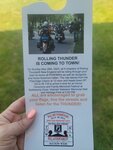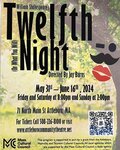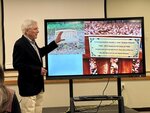How To Relieve Anxiety During The Corona Virus Pandemic
This is a transcript 0f Dr. Dacey’s latest podcast, New Solutions to the Anxiety Epidemic. In weekly episodes, he will explain the causes of the eight types of anxiety, why they do what they do to us, and how we can learn new ways to control them. He knows what he is talking about, as he had been diagnosed with posttraumatic stress disorder. He uses a variety of formats: one-on-one interviews with sufferers, and also with other experts, as well as talks based on his 50+ years as a psychotherapist, professor of developmental psychology and anxiety researcher and author.
Key assets:
- New research on the role of the amygdala, the tiny “old brain,” and its surprising role in anxiety, based on fMRIs, the new movies of brain interactions.
- New ways to “rewire” the anxious brain.
- The four-step, nationally tested, COPE Program for alleviating debilitating anxiety conditions.
- True stories from clients and experts on how they have successfully confronted anxiety.
His new book, Why Don’t You Just Relax? is available at amazon.com, as an electronic book for Kindle, and also as a paperback book. There is some overlap between his podcasts and his new book, but the latter is designed much more as a self-help instrument. We hope you will check it out!
Help with Anxiety about the Pandemic, by Dr. John Dacey
As you probably already know, the most common mental illness in the world today is anxiety. Although feeling fearful during the coronavirus pandemic is entirely normal, seriously disruptive anxious reactions are fast becoming common. Although reading articles and listening to podcasts about this cataclysm is not recommended for those suffering from any of the eight varieties of anxiety syndromes, because the sources might serve to exacerbate your fearfulness, my brief summary of the best new ideas should prove helpful to you.
I also want you to know that my new book, Why Don’t You Just Relax? is available at amazon.com, as an electronic book for Kindle, and also as a paperback book. There is some overlap between my podcasts and this new book, but the latter is designed much more as a self-help instrument. I hope you will give it a look!
Coronavirus
Hi. This is Dr. John Dacey, with my weekly podcast, New Solutions to the Anxiety Epidemic. As you probably already know, the most common mental disorder in the world today is anxiety. Although feeling fearful during the coronavirus pandemic is entirely normal, seriously disruptive anxious reactions are fast becoming common. Reading articles and listening to podcasts about this cataclysm is not recommended for thoronavirse suffering from any of the eight varieties of anxiety syndromes. These sources might serve to exacerbate your fearfulness. However, this very brief summary of the best new ideas that I offer you today should prove helpful to you.
First, let me remind you, my theory about the anxiety syndrome in general is that it is based on childhood claustrophobia. For example, there is the time when I crawled under a pillow in my baby carriage, and was blue-faced by the time my mother discovered me. That laid the basis for associating fear with being trapped, later in my life. Seems to have happened often, and generalized to many other circumstances. Does this ring any bells with you?
So what can we do if we feel trapped now? Trapped in our houses, without our normal social stimuli. Trapped in our bodies, with constant concerns that we are experiencing some coronavirus symptoms. Trapped in our minds, with constant fears that this is never going to end, or that it will end badly for us. What can we do?
- Well, we need to prove to ourselves that we are NOTtrapped! We can go for a walk or a drive by ourselves. A good friend of mine and I met yesterday on a park bench, and, sitting on either end of the bench, we had a stimulating conversation. At one point a lady walking by chided us, saying, “You two are only 5 feet apart!” I think she was kidding.
- We can take advantage of our restrictions by completing jobs we’ve been promising ourselves we would do for ages.
- My favorite writing team, Douglas Preston and Lincoln Child, demonstrate the ultimate example of freedom. Their major character, FBI agent-at-large Aloysius Pendergast, has been chained to a table in a wicked man’s cellar. He was promised that when the man comes back in three hours, Pendergast will die. Our hero decides not to waste the time, so he goes on a delightful trip through a gorgeous garden, in his mind. At the end of 3 hours, Pendergast is well rested, and of course is able to overcome his opponent. The point is, if you don’t like where you are, you can go someplace else, mentally. Sure, it takes some practice, but you can do it. And if you do it, you will no longer feel constrained, that “wrapped-in–rug” horror show so many of us have known, if only in our nightmares. Remember, in the final analysis, YOU ARE THE BOSS OF YOU! Don’t forget your mental executive function that I spoke of in my last podcast on the subject.
- By the way, even better even than a walk, if you are able, go for a run. One man combats his anxiety by starting each day with a 30-minute run, a perk of not having a two-hour train commute anymore. He says, “The morning workouts aren’t about how many calories I burn. It’s really about getting that chemical structure and endorphins for the day.” And he tries to notice the little things, like the leaves starting to bud. Also, “Having the news on every second of every day just feeds into the mania,” Christine Magill adds.
- “If we can put things in chunks, they’re manageable for us, usually,” Larry Berkowitz says. He also suggests that people working from home try to create daily or weekly schedules with their families, and negotiate any expectations or challenges, like needing space away from each other, before tensions flare up.
- And, of course, humor is essential. I asked a friend how she was doing the other day, and she replied that everything with her was just great. “Of course,” she said, “that’s probably because I’m a germophile! I love germs, so this pandemic suits me just fine!”
- Search for and emphasize good news. For example, a new study has found that “often-milder cases, while prolific, are about half as infectious as confirmed ones. And a team of researchers from McMaster University and the University of Toronto have isolated the agent within the novel coronavirus that will help the world develop better diagnostic tools and, eventually, a vaccine.”
- We are hard-wired for a fight-flight-or-freeze response. “The greater the simmering anxiety,” Dr. Harriet Lerner explains, “the more you will see individuals stuck, in fighting and blaming on the one hand, or distancing and cutting off on the other.” This is normal, she says, but if we can identify our anxiety-driven reactivity, “we can get some distance from it, rather than being propelled into action X
If you want more free information about dealing with anxiety, you can follow John Dacey on ANXCALM.COM.
About John Dacey
Dr. John Dacey received a B. A. in Social Science from Binghamton University in 1963, an M. A. T. in social science in 1964 and a Ph. D. in developmental and educational psychology in 1966 from Cornell University.
He joined the faculty of Boston College that year and still teaches there as Professor Emeritus in the the Capstone Program of the School of Arts and Sciences. Dr. Dacey teaches a course on how authenticity can positively affect human development, He has had a practice as a psychotherapist (licensed in Massachusetts) since 1973. He is the author of 19 books on the subjects of anxiety, creativity and human development, including Your Anxious Child (2nd Ed.), Creativity and the Standards, and Your Child’s Social and Emotional Wellbeing. He has received public service awards from Newton, Holliston, Peabody and Roxbury, MA.
He has been interviewed by many of the top US media outlets that include:
The Boston Globe
The New York Times
The Chicago Tribune
The San Francisco Chronicle
The San Francisco Examiner
The Philadelphia Inquirer
The San Diego Union-Tribune
The Washington Post
The Philadelphia Daily News
The Los Angeles Times
The Miami Herald
The Today Show
NPR
Parent’s Journal
Good Housekeeping TV Report
Child Magazine
Parents Magazine
Parenting
Family Fun
Parade
Family Circle
Woman’s Day
Korean National Television
Women’s Forum Program
















Comments
No comments on this item Please log in to comment by clicking here